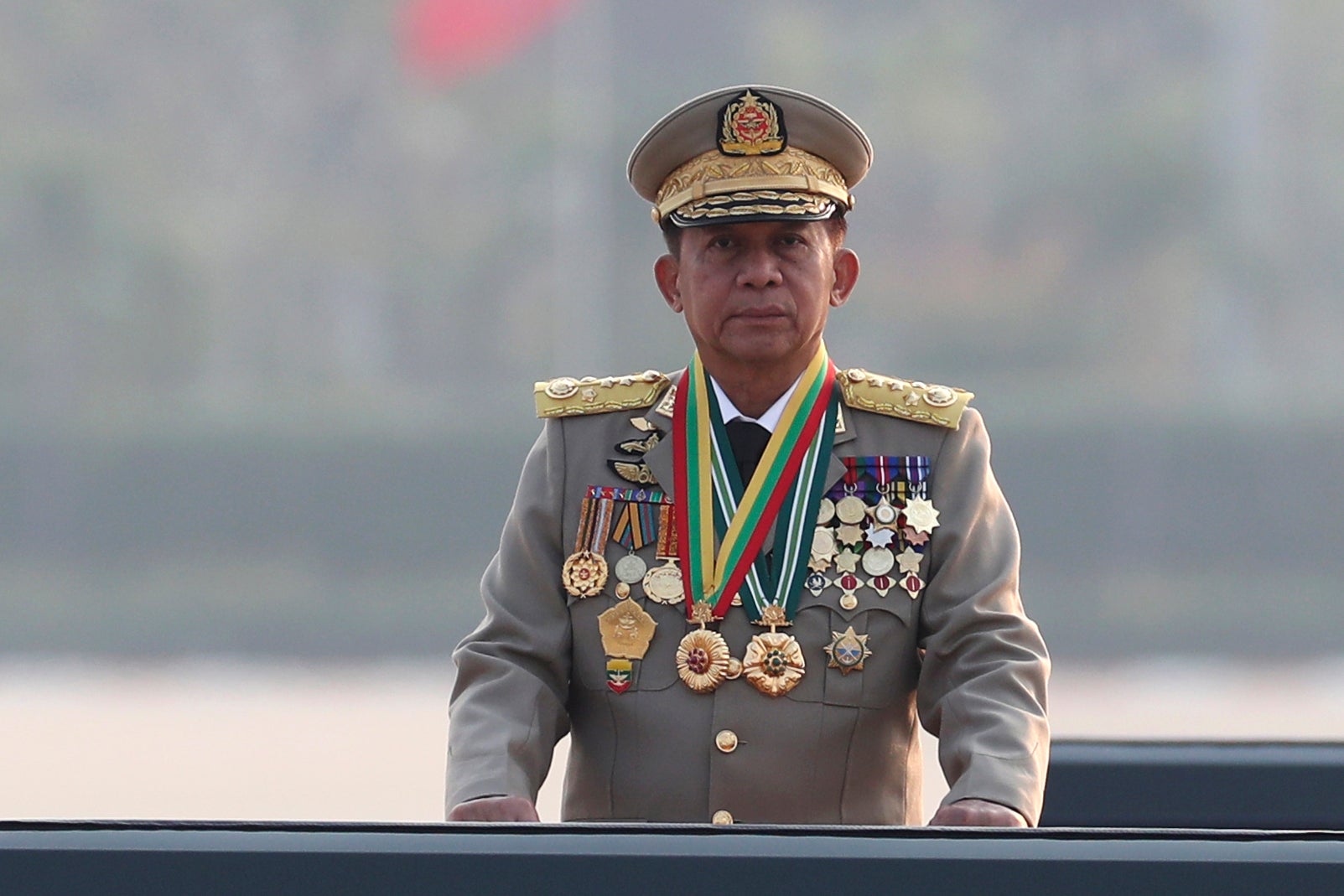Myanmar's military regime extends state of emergency by 6 months as civil war rages
The military regime that seized power in Myanmar 3 1/2 years ago extended the state of emergency in the civil war-wracked country for another six months, saying it needs time to prepare for long-promised elections

Your support helps us to tell the story
From reproductive rights to climate change to Big Tech, The Independent is on the ground when the story is developing. Whether it's investigating the financials of Elon Musk's pro-Trump PAC or producing our latest documentary, 'The A Word', which shines a light on the American women fighting for reproductive rights, we know how important it is to parse out the facts from the messaging.
At such a critical moment in US history, we need reporters on the ground. Your donation allows us to keep sending journalists to speak to both sides of the story.
The Independent is trusted by Americans across the entire political spectrum. And unlike many other quality news outlets, we choose not to lock Americans out of our reporting and analysis with paywalls. We believe quality journalism should be available to everyone, paid for by those who can afford it.
Your support makes all the difference.The military regime that seized power in Myanmar 3 1/2 years ago on Wednesday extended the state of emergency in the civil war-wracked country for another six months, saying it needs time to prepare for long-promised elections.
The state of emergency was initially declared when troops ousted the elected government of Aung San Suu Kyi on Feb. 1, 2021, arresting her and members of her National League for Democracy party.
The emergency decree empowers the military to assume all government functions, giving the head of the ruling military council, Senior Gen. Min Aung Hlaing, legislative, judicial and executive powers.
At the moment, military regime is facing its greatest challenge since taking power, as powerful ethnic minority militias and people's defense forces that support Myanmar's main opposition have taken wide swaths of territory in fierce fighting in recent months.
The military is now estimated to control less than half the country, but is holding on tenaciously to much of central Myanmar, including the capital, Naypyidaw, which was recently targeted by small rocket attacks and two bombings.
The extension of the state of emergency was granted by the National Defense and Security Council, after Ming Aung Hlaing argued more time is needed to restore stability to the country and carry out a census in preparations for national elections, state-run MRTV reported.
The plan for a general election is widely seen as an attempt to normalize the military’s seizure of power through the ballot box and to deliver a result that ensures the generals retain control.
Critics have already said the military-planned elections will be neither free nor fair because there is no free media and most of the leaders of Suu Kyi’s National League for Democracy party have been arrested.
Under the country's 2008 constitution, drafted by the army, the military can rule the country under a state of emergency for one year, followed by two possible six-month extensions before holding elections.
Wednesday's extension, however, was the regime's sixth, and was again rubber-stamped by the NDSC, which is nominally a constitutional administrative government body, but in practice is controlled by the military. It did not announce the details behind its decision.
Additionally, such extensions are supposed to be endorsed by the country's president, but current acting president Myint Swe last week authorized Min Aung Hlaing to carry out his duties with the NDSC while he is on medical leave.
The military originally announced elections would be held in August, 2023, but has regularly pushed the date back and has recently said they would take place sometime in 2025.
Under the country's constitution, for an election to be held the military has to transfer government functions to the president at least six months before the polls.
The 2021 military takeover was met with widespread nonviolent protests. But after peaceful demonstrations were put down with lethal force, many opponents of military rule took up arms, and large parts of the country are now embroiled in conflict.
The fiercest fighting in recent weeks has been in the northeast, where the ethnic militias from an alliance group claimed last week to have seized Lashio, which houses the major regional military headquarters, and Mogok, the center of the country’s lucrative gem-mining industry.
Reports suggest that regime troops continue to hold the regional headquarters but could be forced from Lashio soon.
In Lashio, the main prison gate was reportedly opened over the weekend and more than 200 political prisoners, including Tun Tun Hein, a former deputy speaker of the lower house of Myanmar’s parliament and senior member of Suu Kyi’s National League for Democracy party, were released.
Maung Maung Swe, a member of Myanmar’s main opposition group, the National Unity Government — whose leadership operates largely from outside the country — told The Associated Press that its forces in Myanmar were providing care for more than 200 of released political prisoners.